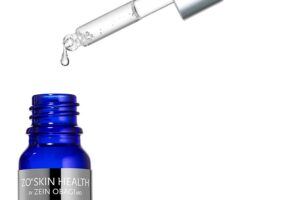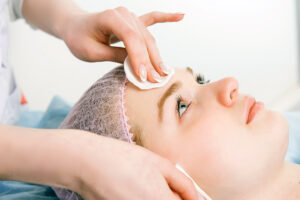Change in Periods
Menopause is defined by having no periods for one year. The lead up to this stage is known as the perimenopause. Before periods stop their regularity can change. A gap of several months can occur between each period; the opposite can also happen. Periods may show up more regularly after a break of several weeks or even months. The amount of blood lost can vary from being very scant, almost like a small stain, to becoming very heavy.
Hot flushes and night sweats
Declining hormone levels alter the way the part of the brain that regulates temperature functions. This often leads to flushing and, ultimately, sweating. The good news is that these symptoms usually respond well to HRT, and the reduction in sweats/flushes can guide the dose that appropriately meets a woman’s needs. It is also important to note that you can be experiencing the change but not have the night sweats, many women report very minor episodes of feeling warm.
Brain fog and difficulty concentrating, memory problems
The changes in the levels of oestrogen and testosterone in the brain can affect the ability to think clearly or concentrate, or lead to memory loss or forgetfulness. It is very common to have difficulty in recalling words and forgetting the end of sentences. This can have a huge impact on confidence and mood.
Anxiety, depression, mood swings, anger, irritability, crying spells
Psychological symptoms are common in menopause. In a British Menopause Society survey, over half of the women interviewed experienced symptoms relating to mood. These symptoms can include feeling stressed or tense, sad or low, losing interest in life, becoming more emotional or tearful, or becoming irritable or losing one’s temper more frequently. These symptoms can be caused by hormonal shifts affecting brain neurotransmitters.
Oestrogen is linked to serotonin levels in the brain, and serotonin is the so-called ‘happy hormone’ that plays a key role in sleep and mood. In addition, oestrogen is linked to the levels of the stress hormone cortisol. When oestrogen levels drop, cortisol levels rise, and therefore, resilience to stress may reduce.
Sleep Patterns
Fluctuations in hormone levels can really interrupt sleep, leading to frequent waking or unrefreshing sleep. Women may report waking in the night and being unable to go back to sleep. Energy levels may fluctuate and will tend to be lowest when oestrogen levels are lowest. Poor sleep can lead to mood changes and affect daily productivity.
Headaches
Headaches are a common symptom women encounter during the change. Women who get hormonal migraine can find that these worsen around the menopause due to the fluctuating hormone levels.
Changes to the vagina and urinary tract
Vaginal dryness, itching or irritation are common symptoms of menopause, as oestrogen can affect the production of vaginal lubricant. Discharge can also decrease, especially during sexual intercourse. Sex can be uncomfortable and not an enjoyable experience. This leads to a vicious cycle where you anticipate it to be uncomfortable and it becomes even more so. Gradually this can take its toll on any relationship.
The naturally healthy bacteria in the vagina can increase or decrease as changing hormone levels affect the acidity in the vagina. This can lead to more infections like thrush or bacterial vaginosis.
A drop in oestrogen levels makes the tissues in the bladder more sensitive and delicate. In some cases, bacterial infections can occur in the wall of the bladder. This can lead to urinary tract infections. In addition, changes in the bladder tissue can lead to passing urine more often than normal, pain when passing urine or leaking urine.
Loss of libido, difficulty reaching orgasm
Women may report reduced sex drive in menopause and more difficulty achieving orgasm. This can be due to several factors, including other menopausal symptoms like vaginal dryness that may make sex uncomfortable, mood changes and feeling fatigued.
Changes in the skin – dry skin, wrinkles and fragility of skin
Oestrogen affects the water levels in the skin and maintains an effective barrier against the entry of substances that can cause allergic reactions. With lower levels of oestrogen, the skin barrier is less effective, leading to dryness and less elasticity.
Oestrogen also affects the production of the protein collagen in the skin. Collagen keeps the skin from sagging. As levels fall, the skin loses strength, and we can become more vulnerable to skin damage and bruising.
Hair loss and brittle nails
Thinning and loss of hair are common symptoms of menopause. This can greatly affect self-esteem and cause immense distress.
Dry eyes
Dry eyes are not uncommon and result from the drop in oestrogen levels. This can cause an itchy or gritty feeling, or the eye can feel uncomfortable.
Digestive problems, heartburn, dyspepsia, constipation and bloating
Many women have experienced changes in their gut function during the stages of menopause. Digestive problems like heartburn, constipation, irregular bowel movements, acid reflux, wind and bloating are often reported.
Burning mouth syndrome
One of the more unusual symptoms of menopause is burning mouth syndrome. This is the sensation of a burning pain in the mouth in the absence of any other cause (such as skin disease of the mouth). The good news is that half of all people report that symptoms go away completely, and may respond to treatment with HRT or antidepressants.
Dry mouth
Loss of oestrogen can result in a dry mouth as salivary glands make less saliva. This is important to know because saliva keeps our mouth and gums healthy.
Changes to taste and smell
Taste and smell can change with the menopause. Falling oestrogen affects saliva, which can reduce or change our sensation of taste.
Palpitations and dizziness
Whilst it is common to notice a racing heart and dizziness, or irregular heartbeats during menopause, these symptoms, if experienced, must be followed up with a Doctor to ensure that there is not another underlying cause.
The risk of cardiovascular disease for women rises significantly during the menopause, so it is a good time to review your heart health and understand how you can keep it healthy into the future. HRT has been proven to reduce your cardiovascular disease risk.
Joint pain
Loss of oestrogen can affect joints and the connective tissue that holds the the skeleton together. This results in general muscle aches, pains and stiffness.
Osteoporosis
Osteoprosis is a condition where bones lose density, a change directly linked to a loss of oestrogen. Osteoporosis develops slowly, usually over severa; years, and you probably will not know it is happening to you until you break a bone, more often than not as a result of a low-impact injury.
Allergies
Some women report allergies such as hayfever, eczema or asthma for the first time in their early 40s, associated with the perimenopause. There are many factors at play here, and in the skin, the reduction in the effectiveness of the skin’s barrier is one. However, we also know that oestrogen even modulates the immune system, reducing inflammatory responses.
Histamine is important for the immune system. Oestrogen can increase histamine levels leading you to have allergy or bowel symptoms. This is a condition named Histamine Intolerance and can be treated with dietary changes and improving gut health.
Weight gain
Women often gain weight during the progress of menopause. It can be linked directly to the menopause but can also be caused by the effects of other symptoms, such as fatigue, leading to reduced activity levels.




